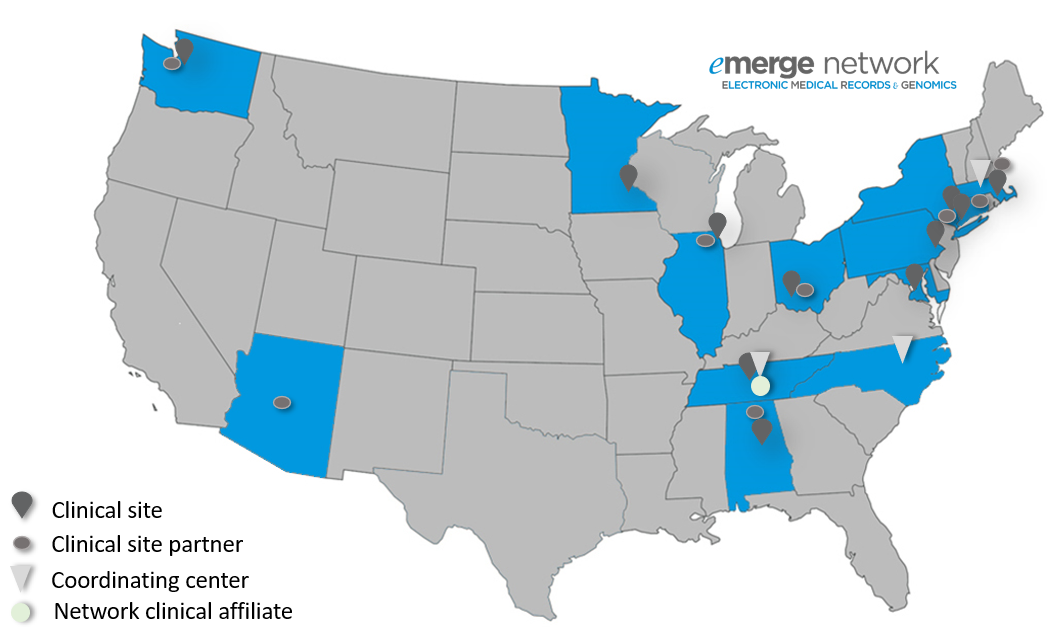eMERGE is a national network organized and funded by the
National Human Genome Research Institute (NHGRI) that combines DNA
biorepositories with electronic medical record (EMR) systems for large
scale, high-throughput genetic research in support of implementing genomic
medicine.

Many factors contribute to risk of a disease. Some of these factors are internal,
like genetics, and others are external, like where someone lives. Over the last several years
researchers have discovered that in addition to one gene being associated with a given
disease (monogenic factors), many genes across your genome can contribute to the development
of a disease (polygenic factors). To learn more about elements that contribute to risk a disease,
click here.
Latest News
ELSI Revised NOFOs
April 4, 2025 2:34 PM
DEADLINE EXTENDED, Now April 14th: NCI/AcademyHealth Visiting Scholars Program
March 3, 2025 9:41 PM
Inviting Feedback on the Framework for the NIH Strategic Plan for Disability Health Research FY26-FY30
January 1, 2025 7:38 PM
CTSA Collaborative & Innovative Acceleration (CCIA) Award NOFO and Notice for TA webinar
January 1, 2025 7:37 PM
NHGRI 2025 Training Meeting
December 12, 2024 10:27 PM
Funding Announcement: RFA-HG-25-005
November 11, 2024 2:36 PM
Recent Publications
Khan A, Karakoc G, Liu G, Zanussi J, Kawai V, et al. Genetic relationships between systemic lupus erythematosus and a positive antinuclear antibody test in the absence of autoimmune disease. Lupus science & medicine. 2025 Jun 12;12(1).
Strom NI, Gerring ZF, Galimberti M, Yu D, Mattheisen M, et al. Genome-wide analyses identify 30 loci associated with obsessive-compulsive disorder. Nature genetics. 2025 Jun;57(6):1389-1401.
Shahidehpour RK, Katsumata Y, Dickson DW, Ghayal NB, Nelson PT, et al. LATE-NC Stage 3: a diagnostic rubric to differentiate severe LATE-NC from FTLD-TDP. Acta neuropathologica. 2025 Apr 28;149(1):38.


